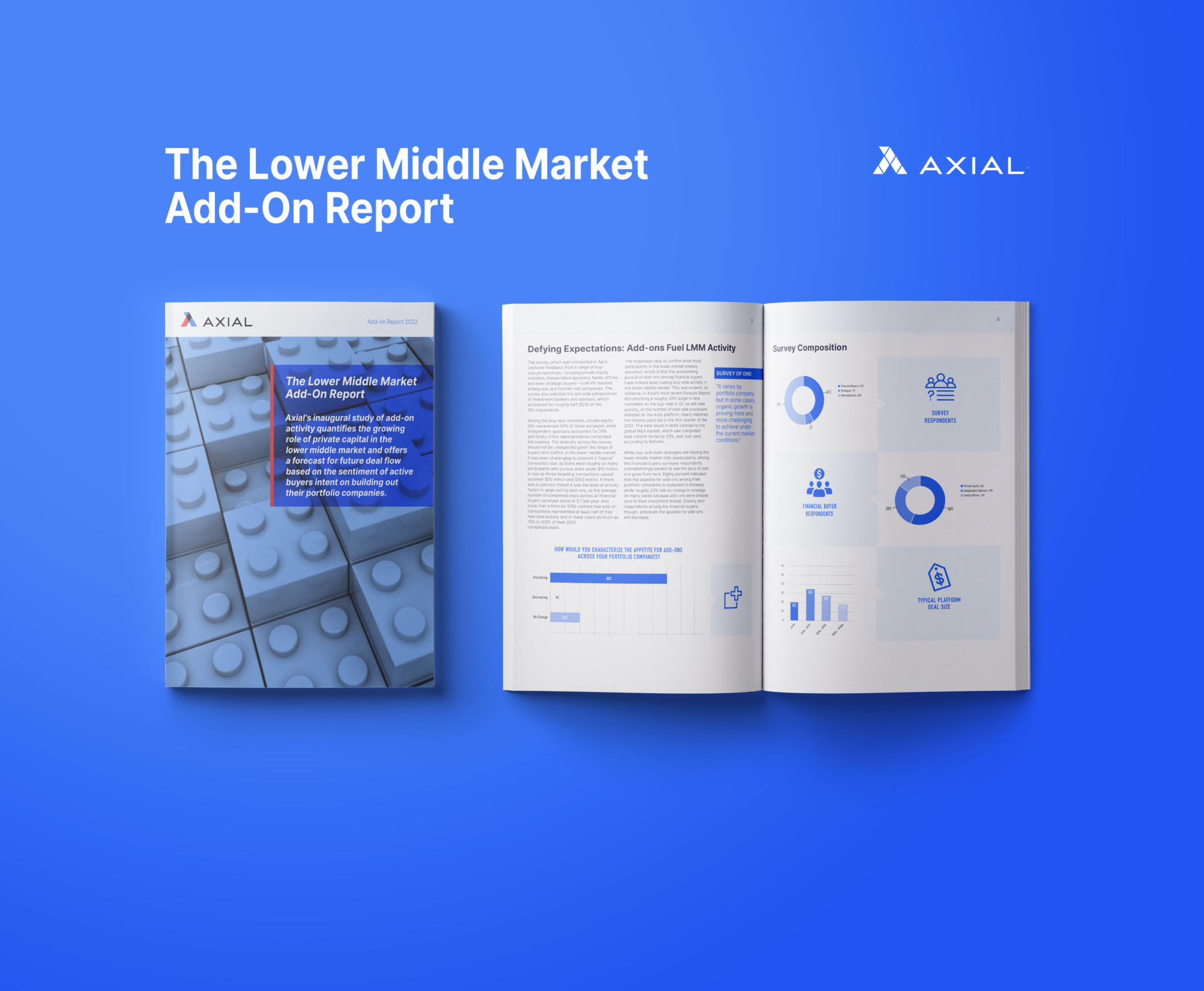
Introducing The Lower Middle Market Add-On Report
A survey of 150 deal professionals across the Axial network documents the extent to which financial sponsors have descended upon…
Tags
Editor’s Note: As the new year begins, dealmakers naturally reflect on the past year and what’s to come in the New Year. In Part 4 of this Forum series, we are here to share the last of the five trends we expect to see in 2018. Read on to learn more, and you can download the entire report here.
While the new tax legislation is going to vote as we go to press with this report, it’s safe to say there will be positives and negatives for businesses, private equity firms, and consumers.
The proposed bill will only allow companies to deduct corporate interest on up to 30 percent
EBITDA for the first four years and then 30 percent of EBIT afterward. This is a big change from the current 100 percent deductibility of interest. Because of their reliance on leverage, private equity firms would be hurt by not being able to deduct interest expense from their portfolio companies’ taxable income. “There is a reason these deals are called leveraged buyouts. They rely on the tax shield to enhance returns. This change will be a huge issue for non-traditional bank lenders. They are going to have to figure out new ways to do business,” says Burkhart.
On the other hand, DePonte argues that less reliance on leverage wouldn’t be so bad for the private equity business. “Tax law could drive private equity firms to focus more on making companies better than on using leverage to drive returns,” he says, acknowledging that the industry has been increasingly focused on making improvements rather than financial engineering in recent years.
The latest bill also proposes that carry at private equity funds continue to be treated as a capital gain if those investments are held longer than three years, a longer timeline than the one-year threshold currently applied. “Right now, the outcome is looking more like a 3-year holding period for long-term capital gains treatment,” says Perkins, who is very involved in lobbying efforts on behalf of the private equity industry via the Association for Corporate Growth Public Policy Committee.
Additionally, it seems that their portfolio companies could have more money as a result of cutting the corporate tax rate from 35 percent to 21 percent. Some feel this will make American businesses more competitive with companies abroad.
“We are already talking to our companies about what we will do with the extra cash, which is a good thing. It will allow us to reinvest in the business,” says Kaplan.
